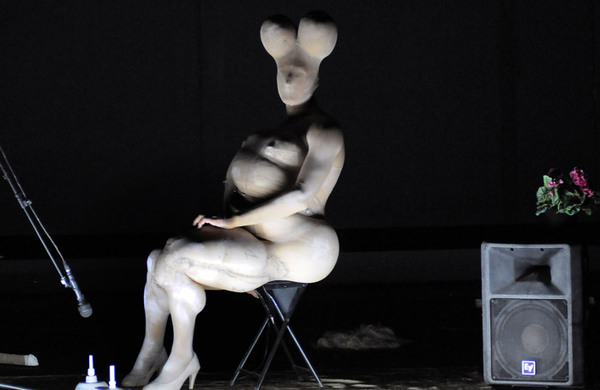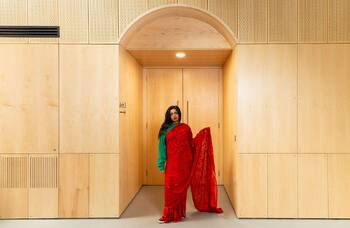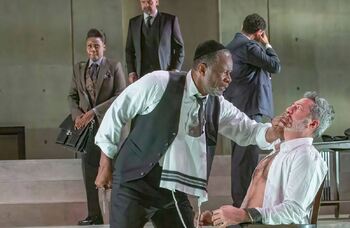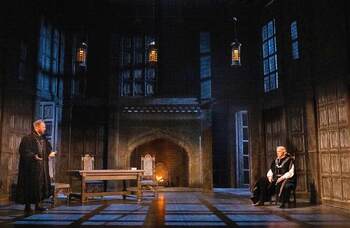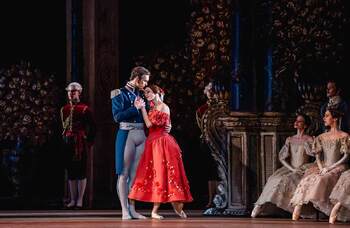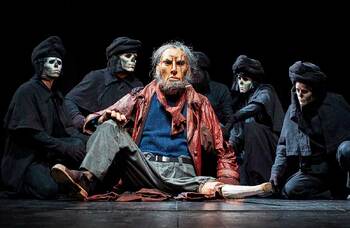Titans review
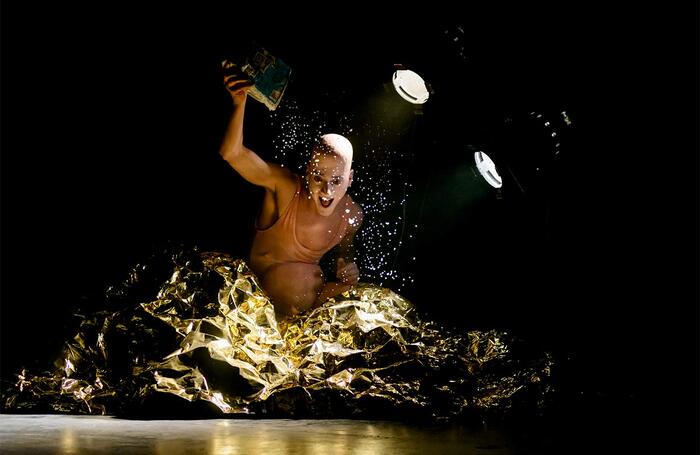
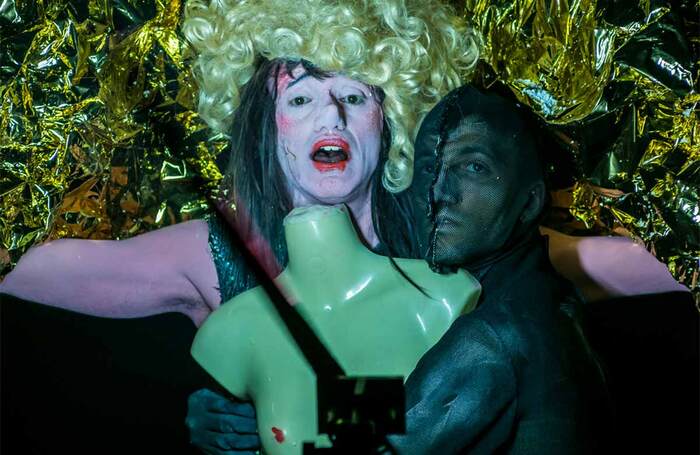
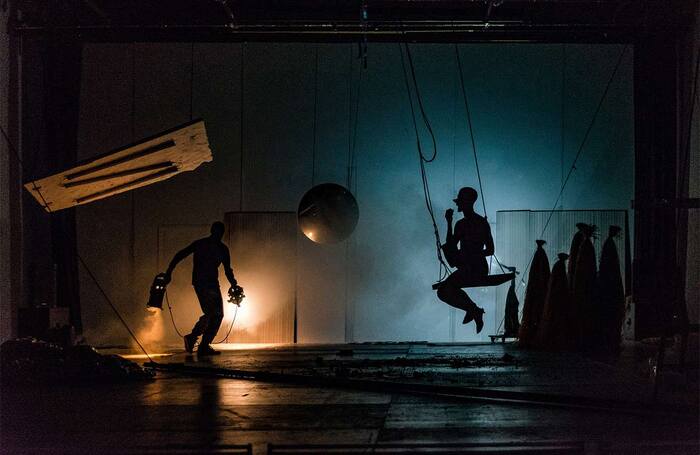
Playful, avant-garde queer clown show inspired by Greek mythology
You don’t have to be an expert in Greek mythology to gain entrance to the imaginative stage worlds concocted by Euripides Laskaridis, although it might enhance the pleasure to be derived along the way. This relatively short chamber piece takes just the time it needs to conjure an atmosphere and tickle the funny bone. A two-hander created in 2017, it’s typical of Laskaridis’ work: unpredictable, even quasi-chaotic, but playful, gender-bending and filled with dream-like imagery and light and shade.
It’s a dish of oddly shaped, tasty hors d’oeuvres rather than a full meal and you are not always sure what you’re eating, but for the most part it goes down well. You could call it an avant-garde queer clown show, and it fits right in with the adventurous international programming of the quirkily beautiful, antique-filled Coronet Theatre.
It commences with the rise of a long, narrow bar of light, a call of horns on the soundtrack and a glimpse of Laskaridis on the ground – a leggy, sunbathing, non-binary comic showgirl-goddess with a pointy nose, pregnant belly and a penchant for distortedly high-pitched, unintelligible chatter. Slipping about on the periphery, avoiding attention, is Dimitris Matsoukas as a less-defined figure in black, sometimes busy with tasks but never uttering a sound.
Laskaridis’ design is an installation-like arrangement of clutter, and the performers manipulate and interact with various items or objects. These include a suspended light fixture that doubles as a swing, a mound of lumpy dirt covered by a thin carapace of gold foil and a bright, domestic corner featuring hanging vines, an ironing board and a squat, pop-topped bin concealing a secret fountain. There are also slabs of Styrofoam, broken up and grated into snow-like particles by Matsoukas or gouged out in a slapstick turn by Laskaridis.
Some moments are striking, among them a propeller lighting effect that casts Matsoukas’ unstable shadow on to a large corrugated backdrop. And towards the end, Laskaridis’ character shifts their seemingly disembodied head along the light bar, gurning while humming a ditty. They are sometimes blissed out, sometimes shrieking in panic and alarm; eventually their waters break and there is a kind of birth, followed by a would-be transcendental, apotheosis-like finale. The net result? Something more than self-indulgent fluff – but less than complete satisfaction.
More Reviews
Recommended for you
More Reviews
Recommended for you
Most Read
Across The Stage this weekYour subscription helps ensure our journalism can continue
Invest in The Stage today with a subscription starting at just £5.99
